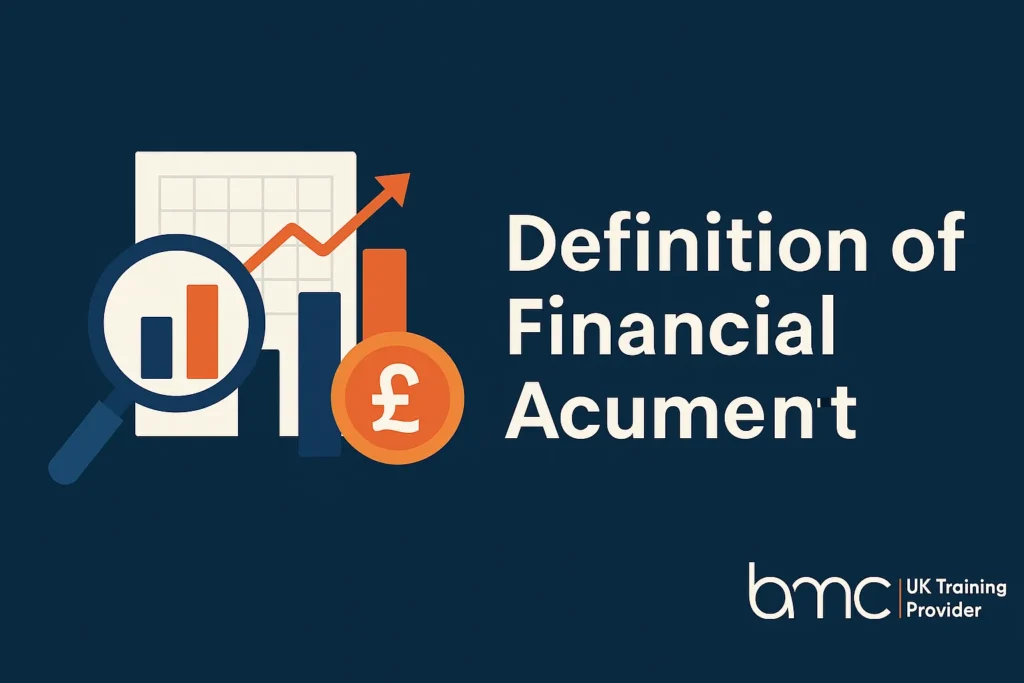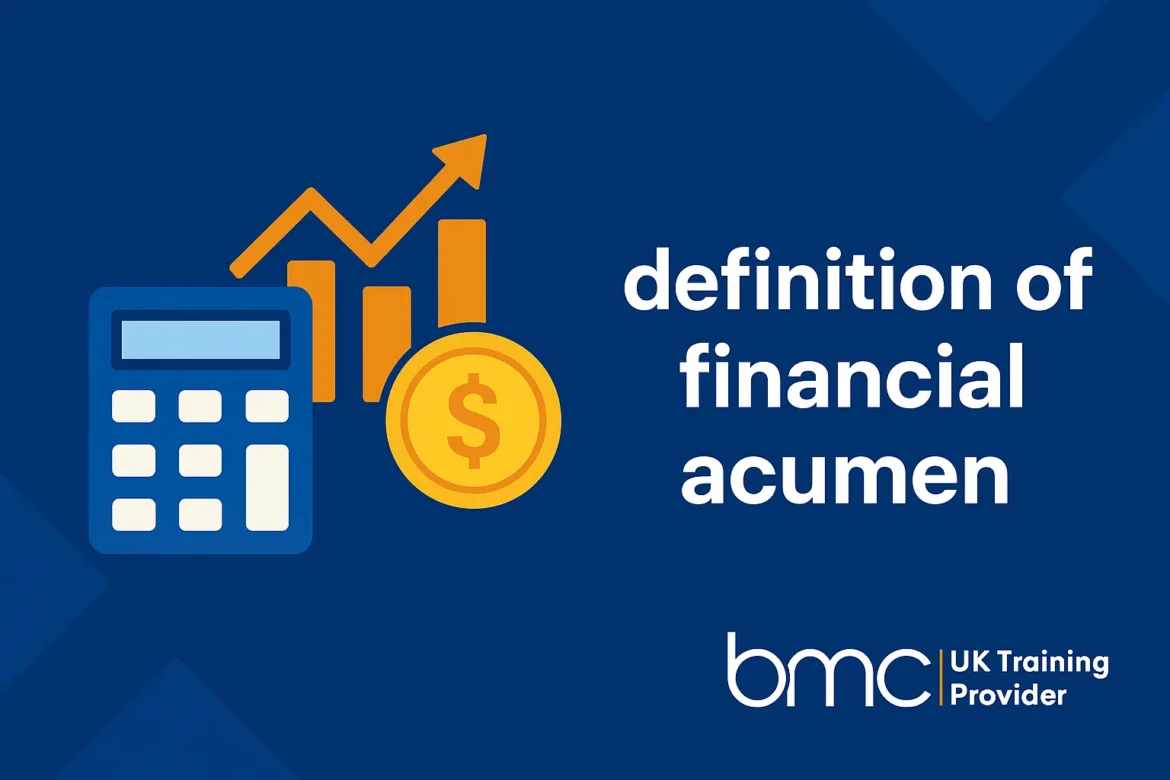Are you a manager looking to make more strategic decisions? An accountant aiming to elevate your advisory role? In today’s business environment, simply being good at your job isn’t enough; you need to master the financial story behind your operations. This article is your definitive guide to Financial Acumen, a critical skill that translates numbers into meaningful business action. We’ll cover exactly what it is, why it’s essential for success, how to develop it, and the core components that drive real-world impact. Read on to transform your understanding and start driving profitability.
What is Financial Acumen? The Foundational Definition
Financial Acumen is the knowledge, understanding, and application of fundamental accounting and finance principles to make sound business judgments and decisions.
It goes beyond basic financial literacy (the knowledge of terms and concepts) by focusing on the application—the ability to interpret financial data, assess the potential impact of strategic choices, and align departmental actions with the organization’s overarching financial goals.
In simpler terms: It’s the ability to “read the scoreboard” (financial statements) and use that information to “play the game better” (make profit-driving decisions).
Core Components of Financial Acumen
Financial acumen is built upon a practical understanding of five key areas:
Read Also : The Engine of Efficiency: Mastering Business Coordination for Organizational Success
Why is Financial Acumen Essential for Non-Finance Roles?
Financial acumen is no longer a skill reserved for the CFO. It is a strategic imperative for all managers, project leads, and decision-makers across every department.
The Importance of Financial Acumen in the Workplace
- Strategic Alignment: It allows non-finance leaders to connect their daily operational decisions (e.g., hiring, purchasing software, project prioritization) directly to the company’s bottom line and strategic objectives.
- Effective Resource Management: Managers with financial skills can justify budget requests, allocate resources efficiently, and spot areas of waste or inefficiency.
- Enhanced Credibility and Communication: Speaking the “language of finance” (using terms like ROI and Gross Margin) builds trust with senior management, finance teams, and external stakeholders.
- Risk Mitigation: Understanding financial data helps leaders anticipate and manage financial risks, such as cash flow shortages or excessive debt.
Experience in Action Example: A Marketing Manager with strong financial acumen won’t just ask for a bigger advertising budget; they will propose an investment tied to a quantifiable Return on Investment (ROI) metric, showing how the increased spending will generate profits that exceed the cost, thereby justifying the expenditure strategically.
The Core Distinction: Financial Acumen vs. Financial Literacy
While often used interchangeably, there is a crucial difference that defines high-performance leadership.
Financial Acumen = Financial Literacy + Strategic Judgment. You need the literacy to have the acumen, but the ability to apply that knowledge to strategic decision-making is what truly defines acumen.
How to Develop and Improve Financial Acumen
Improving your financial acumen is an ongoing journey that requires both formal education and hands-on experience.
Practical Steps to Build Financial Intelligence
When is Financial Acumen Most Critical?
Financial acumen shines during moments of decision, change, or growth.
Critical Business Moments Requiring Strong Financial Acumen
- During Annual Budgeting and Planning: To ensure realistic goals and optimal resource allocation.
- Evaluating New Projects or Investments: To accurately calculate the payback period and internal rate of return (IRR).
- Negotiating Contracts: To understand the full cost-of-ownership, not just the sticker price.
- Assessing Organizational Performance: To diagnose the root cause of underperformance, differentiating between sales issues and cost inefficiencies.
- Leading Change Initiatives: To clearly articulate the financial rationale for change to your team and stakeholders.

Frequently Asked Questions (FAQ)
Q: Is financial acumen only for managers and executives?
A: No. While critical for leadership, financial acumen is beneficial for everyone. Individual contributors who understand how their work affects revenue and costs are more valuable and make smarter daily decisions regarding time, resources, and spending.
Q: How can I measure my team’s financial acumen?
A: You can measure it through their behavior: Do they proactively discuss ROI and cost savings? Can they accurately interpret the key metrics on a departmental budget report? Are their proposals supported by strong financial justification? Formal training and assessment tools can also quantify baseline knowledge.
Q: Does financial acumen mean I need to become an accountant?
A: Absolutely not. Financial acumen means you can use the data provided by accountants to drive strategy. You need to understand the outputs (reports) and the key inputs (costs, revenues), but you don’t need to master the complex rules of bookkeeping or tax law.
Final Call to Action and Next Steps
Do you feel confident translating your department’s actions into tangible financial results?
The demands of modern business mean you must be able to think like a finance expert, regardless of your job title. Don’t let a lack of financial confidence limit your career growth or your organization’s potential.
Ready to move from simply understanding financial terms to confidently making profitable decisions?
About BMC Training
BMC Training offers a comprehensive suite of accounting, finance, and budgeting courses designed specifically for professionals like you—managers and specialists eager to master the financial aspects of their roles. We provide diverse training options, from fundamental accounting principles to advanced financial modeling techniques, suitable for all experience levels in 2025 and 2026.
What sets us apart is our E-E-A-T approach: we deliver expert content through highly experienced instructors, focusing on practical, hands-on application and real-world case studies to build immediate confidence and strategic thinking.
Enhance your financial acumen and drive informed decision-making! Discover Finance, Accounting, and Budgeting Courses for 2025 and 2026. Contact us today or click below to explore our full catalogue and register for a course that will transform your career.
Discover Our Finance & Accounting Training Courses Now!


